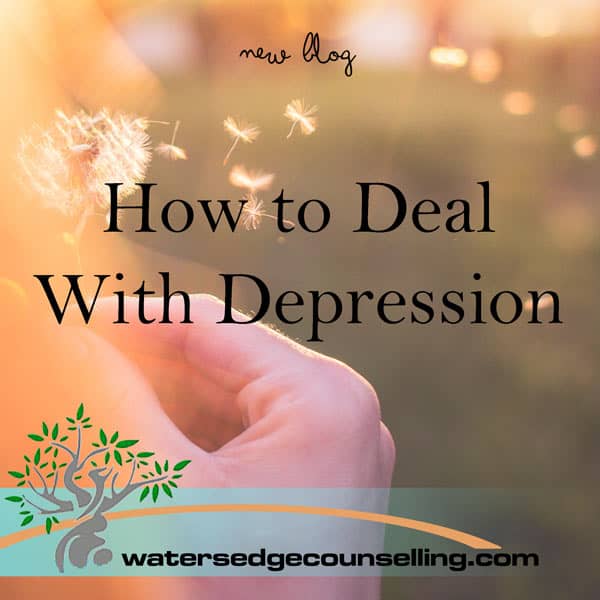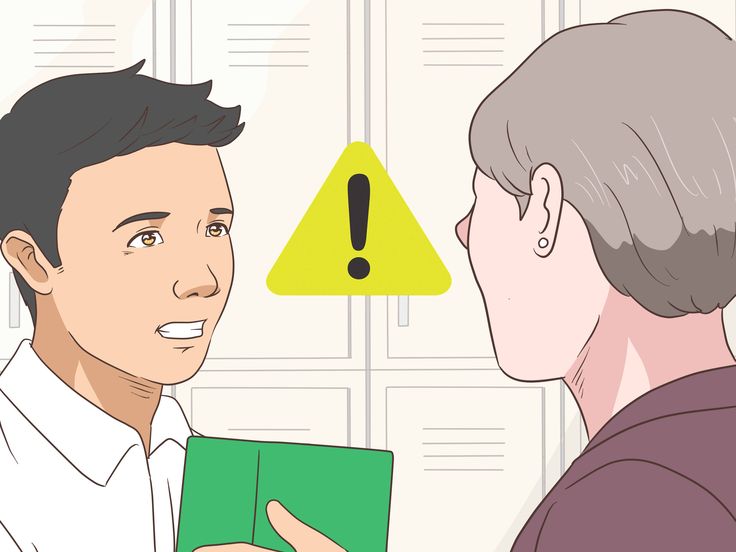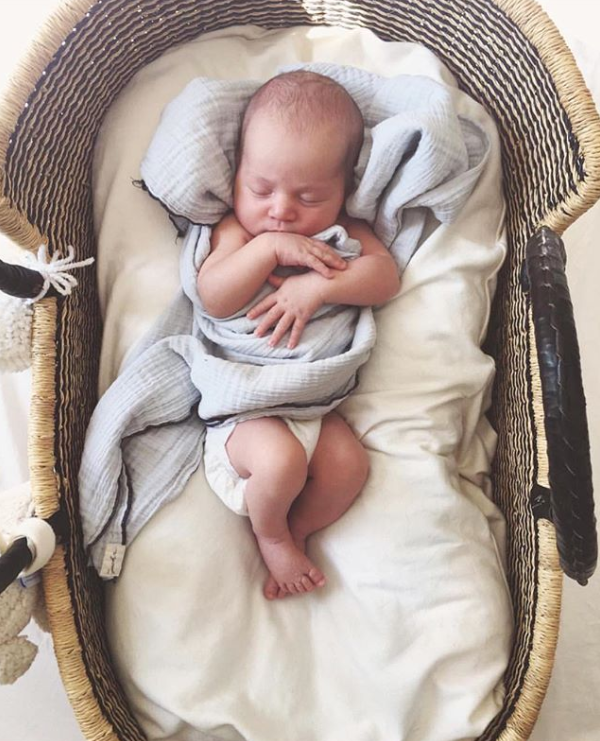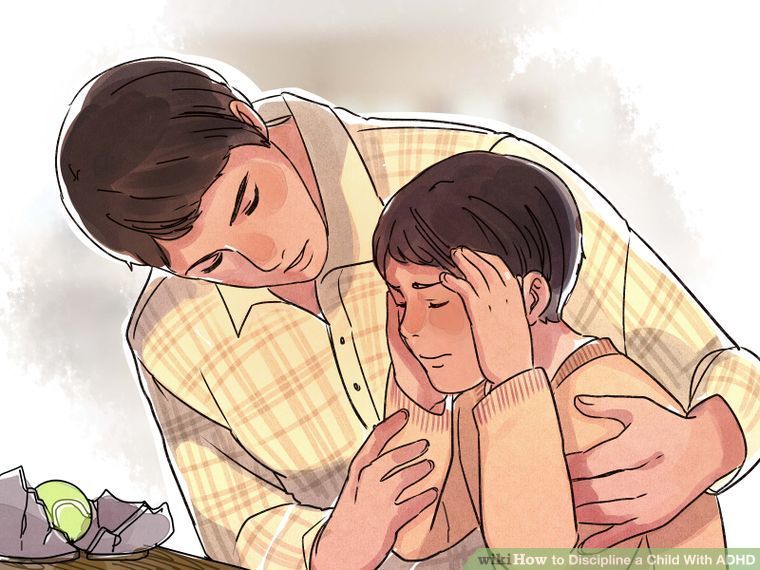How to deal with a miscarriage emotionally
After a Miscarriage: Surviving Emotionally
First of all, we are so sorry that you’ve experienced a loss that has brought you to this page. We and so many women in similar situations all over the world grieve with you and want to remind you that no matter how you feel, the truth is that this is not your fault. It’s important to take time after a miscarriage to heal not only physically but emotionally too.
Experiencing a pregnancy loss means that you are probably feeling more sadness than you ever thought possible. Having a miscarriage can be very difficult. The emotional impact usually takes longer to heal than physical recovery does. Allowing yourself to grieve the loss can help you come to accept it over time.
Women may experience a roller coaster of emotions such as numbness, disbelief, anger, guilt, sadness, depression, and difficulty concentrating. Even if the pregnancy ended very early, the sense of bonding between a mother and her baby can be strong.
Some women even experience physical symptoms from their emotional distress. These symptoms include:
- fatigue
- trouble sleeping
- difficulty concentrating
- loss of appetite
- frequent episodes of crying
- broken or suffering relationships with family or friends
- self-harm/suicidal attempts or actions
The hormonal changes that occur after miscarriage may intensify these symptoms.
What should I expect After a Miscarriage?
The grieving process involves three steps:
Step 1: Shock/Denial
“This really isn’t happening; I’ve been taking good care of myself.” “Maybe the doctors are wrong…maybe I’m still pregnant.”
We’re not going to lie to you, it’s going to be a difficult thing to accept. Talk with your doctor about what this might look like physically for you. When will your hormone levels return to normal? How long might you still have symptoms for? This may give you more guidance into what to expect, and talking about practicals surrounding the situation may feel cold, but it may give you more to grasp at as you try to understand what this means for you.
Step 2: Anger/Guilt/Depression
“Why me? If I would have…” “I’ve always wanted a baby so bad, this isn’t fair!” “I feel sadness in my life now more than ever.”
You may feel angry – angry at your doctor, your partner, yourself, God, your situation…you name it. Maybe you think the doctors could have done more, or you’re angry that your partner isn’t consoling you in just the right way, or that he’s not as torn up about it as you are. If you have strong spiritual beliefs, you may yell at God or be angry that “He let this happen.”
But most of the time, you’re angry at yourself. You might even feel guilt and question if it was your fault as if you could have done more. The incredibly important thing we want you to know is that with miscarriage, it’s not your fault. As hard as it is to hear, it is a natural occurrence, and even if you were doing all the right things, it may still happen anyway.
When something goes wrong, we all stretch to find someone, something to blame. With miscarriage, there’s not really anyone or thing to blame, and it leaves us grasping for some way to make sense of what happened, leaving misplaced anger and guilt. And as you’re experiencing all these confusing emotions, all of this can lead to depression.
With miscarriage, there’s not really anyone or thing to blame, and it leaves us grasping for some way to make sense of what happened, leaving misplaced anger and guilt. And as you’re experiencing all these confusing emotions, all of this can lead to depression.
The one thing we can tell you is to get help. Talk about what’s going on with your partner, a trusted friend, a counselor, or a spiritual leader or mentor. If you’re not ready to talk, write it down. If you’re angry, write a letter and get it out of your system. Listen to some music, cry in the shower, go for a long walk with your dog (if you have one). Find some way to experience these strong feelings but in a safe way.
Step 3: Acceptance
“I have to deal with it, I’m not the only one who has experienced this. Other women have made it through this, maybe I should get some help.”
This is what this expected roller coaster of emotions has led to this is real, isn’t it? This is really happening. Once you get to this point, you are ready to look this in the eye and figure out how to live with your loss. Acceptance doesn’t mean that you’re okay with what happened, that you’re not still experiencing a million emotions – it simply means that you confirm in your mind that this is real.
Once you get to this point, you are ready to look this in the eye and figure out how to live with your loss. Acceptance doesn’t mean that you’re okay with what happened, that you’re not still experiencing a million emotions – it simply means that you confirm in your mind that this is real.
That doesn’t mean it’s easy from this point on, it just means that you know and understand what you’re dealing with. This is the time that a lot of women and their significant others are able to seek counseling or support groups, or are able to open up about their experiences.
Each step takes longer to go through than the previous one. There are unexpected and sometimes anticipated triggers that lead to setbacks. Examples of potential triggers include baby showers, birth experience stories, new babies, OB/GYN office visits, nursing mothers, thoughtless comments, holidays, and family reunions.
How can I survive my pregnancy loss?
Respect your needs and limitations as you work through your grief and begin to heal.
As you work through this difficult time:
- Reach out to those closest to you. Ask for understanding, comfort, and support.
- Seek counseling to help both yourself and your partner. You don’t have to face this alone.
- Allow yourself plenty of time to grieve and the opportunity to remember.
How Women and Men Grieve Differently:
Generally, women are more expressive about their loss and more likely to seek support from others. Men may be more action-oriented, tending to gather facts and problem solving, and therefore often do not choose to participate in support networks that consist of sharing feelings. This does not mean he is not grieving. Often men bury themselves in work when they are grieving.
Parents experience different levels of bonding with a baby. The bond between a pregnant woman and the baby growing inside her is unique. A woman can begin bonding from the moment she has a positive pregnancy test. Bonding for the father may start as he experiences physical signs of the baby, such as seeing an ultrasound picture or feeling the baby kick.
However, especially for men, real bonding may not develop until after the baby is born. This is why men may seem less affected when the loss of the baby occurs early in pregnancy. These differences may cause strain in your relationship as you try to come to terms with the loss.
After a Miscarriage, You can help your relationship to survive by:- Being respectful of and sensitive to each other’s needs and feelings.
- Sharing your thoughts and emotions by keeping communication lines open.
- Accepting differences and acknowledging each other’s coping styles.
Understanding Your Healing Rights:
Healing doesn’t mean forgetting or making memories insignificant. Healing means refocusing.
You have the right to:
- Know the facts about what happened and potential implications for the future. Seek answers to your questions, look at the medical records, and take notes.
- Make decisions about what you would like to do with your maternity clothes and baby items.
 Others might try to make quick choices for you; instead, use others to help you figure out what option is best for you.
Others might try to make quick choices for you; instead, use others to help you figure out what option is best for you. - Protect yourself by avoiding situations that you know will be difficult. Set realistic goals for yourself. For example, focus on coping throughout each day rather than the entire week.
- Take time to grieve and heal. There is no set time allotment for healing nor is it something that can be rushed.
- Receive support even though this may not be easy for you. If you feel out of control or overwhelmed, consider seeking help from a counselor, therapist or support group to help guide you through the grieving process.
- Be sad and joyful. It is okay to feel sad at times but the key is to not let it control you. Others have survived their grief, and in time you will too. Do enjoyable things because laughter and joy are healers. Remember that celebrating bits of joy doesn’t dishonor your loss.
- Remember your baby. Healing doesn’t mean forgetting or making memories insignificant.
 You may want to name your baby. Some women find comfort by doing something tangible like planting a tree, selecting a special piece of jewelry with a birthstone, or donating to a charity. On the anniversary you may want to share a special time with your partner.
You may want to name your baby. Some women find comfort by doing something tangible like planting a tree, selecting a special piece of jewelry with a birthstone, or donating to a charity. On the anniversary you may want to share a special time with your partner.
Helpful Websites and Books:
- Parents or other family members who have experienced the loss of a baby between conception and the first month of life can receive a free March of Dimes bereavement kit by contacting the Fulfillment Center at 1-800-367-6630 or at [email protected]
- Other Helpful Websites:
- www.mend.org
- www.thelifeididntchoose.com
- www.babyloss.com
- www.miscarriagesupport.org.nz
- Helpful Books:
- Miscarriage: Women Sharing from the Heart — by Shelly Marks, Marie Allen
- Miscarriage: A Shattered Dream — by Sherokee Isle, Linda Hammer Burns
- Surviving Pregnancy Loss: A complete sourcebook for women and their families — by Rochelle Friedman and Bonnie Gradstein
Compiled using information from the following sources:
1. March of Dimes.
March of Dimes.
2. Miscarriage Support Auckland Inc.
Your feelings and emotions after miscarriage
Loss of trust in your body
You may feel let down by your body or that it has played tricks on you, particularly if you had a missed miscarriage and had no symptoms. You might feel a strange disconnect between you and your body. You may feel this same lack of faith in your body in future pregnancies and resent the fact that you’re unable to enjoy your pregnancy.
Don’t forget that you will be affected physically, as well as emotionally. Your hormone levels are rapidly changing after a miscarriage, and mood swings and tears are normal. It may take a bit of time before your body feels normal again. The mind can affect the body and vice versa. Try to take care of your physical and emotional health as best you can.
“‘The trouble with miscarriage is that most people don’t understand what it is you’ve actually lost. I’ve lost my babies. I’ve lost the ability to be excited about pregnancy.
I’ve lost trust in my body, in hospitals and in statistics. Most of all I’ve lost faith, in myself and in the future.” Melissa's story. Read more...
Confusion
If your pregnancy wasn’t planned, you might be struggling with conflicting emotions. It could be that you were unsure about pregnancy and didn’t expect to feel so strongly about the loss. You may even feel guilty about being a little relieved. On the other hand, you may find other people assume you are feeling relieved when you are anything but, which can be very upsetting.
Loneliness
Some women find themselves feeling alone in their grief because nobody knew they were pregnant in the first place. It can also be very difficult if other people’s reactions to your loss are unhelpful or upsetting.
Some couples may also worry that their loss has affected their relationship with their partner.
Think about whether you might want to tell your employer, a close colleague, friends or family. Being able to talk about your loss might help you to feel less lonely and better supported.
Being able to talk about your loss might help you to feel less lonely and better supported.
“I for one found the thought of waiting 3 months to tell our families and close friends impossible. The way they shared in our excitement and later our grief really meant something to us. I found it almost impossible to tell anyone at work, so I didn’t feel I could share my loss. I had a silent scream in my head I couldn’t let out.”Read more...
How do I cope with these emotions?
There is no easy way to grieve after something like this happens, but there are some practical things you can do that may help.
Allow yourself to feel sad
Try not to push yourself, feel guilty about feeling sad or try to force yourself to feel happy, even if a lot of time has passed since your miscarriage. Feeling sad is a healthy part of the grieving process.
Commemorate your loss
A lot of people like to find a special way to remember their baby or to do something that makes them feel like they’ve said a proper goodbye.
Find out more about remembering your baby after a miscarriage.
Express yourself
You and your partner have been through a traumatic experience and you may both find it helpful to find ways to express how you feel.
Some people find keeping a diary or journal helps them make sense of their feelings. Sometimes just the act of writing down your thoughts and feelings down is effective.
Try to talk to someone about how you feel. If you have a partner, it’s a good idea to try to support each other. Be aware that you may have different feelings and ways of coping. This doesn’t mean you don’t love each other.
Sometimes it can help to talk to a professional counsellor, either as a couple or on your own. Your GP can refer you to NHS counselling services or you may be able to refer yourself. You can also contact the British Association for Counselling and Psychotherapy to find a local private service.
Sleep
Emotional stress can make you very tired, but you may also find it difficult to sleep. See your GP if you’re struggling.
See your GP if you’re struggling.
Eat healthily
You may be finding it difficult to eat, but it’s important to try and eat a healthy, well-balanced diet.
Avoid 'numbing' the pain
Avoid things that ‘numb’ the pain, such as alcohol. It'll make you feel worse once the numbness wears off.
If you are finding it hard to cope
Sometimes grief can be overwhelming. If you are struggling to cope with your feelings, you are not alone.
It is possible to develop mental health problems because of the grief caused by losing a baby. Depression and anxiety are common, but some women may develop other issues, such as post-traumatic stress disorder (PTSD) or perinatal obsessive compulsive disorder (OCD).
"I struggled with anxiety and felt very low. In fact, I felt like I was losing my mind."
Toni. Read her story...
Talk to your GP if you are worried about how you or someone else is feeling. There is support available and mental health problems are treatable.
You can also talk to a Tommy’s midwife free of charge from 9am–5pm, Monday to Friday on 0800 0147 800 or you can email them at [email protected]
You can also join the Tommy's Baby Loss Support Group on Facebook for those who have experienced any type of baby loss.
More information and support
Anxiety UK is an organisation run by with anxiety disorders, offering information, support and therapies for people experiencing anxiety.
British Association for Counselling and Psychotherapy (BACP) provides information for those who are considering some form of counselling. Call them on 01455 883316.
MIND is a mental health charity providing information, support, local groups and an online chatroom. They have specific information about postnatal depression and perinatal mental health, including postnatal PTSD and birth trauma.
No Panic provides online and telephone support for people suffering from panic attacks, phobias, Obsessive Compulsive Disorder, and anxiety disorders.
How to psychologically cope with a miscarriage?
A very painful and disturbing topic for every woman who decides to become a mother is a miscarriage. At any age, the loss of a child is extremely difficult, it is a difficult test. Of course, each person, due to the nature of his character and temperament, experiences this shock in different ways, and yet - what to do if such a misfortune happened to you?
Don't withdraw into yourself
Yes, it's very difficult, almost impossible, because in the first days after what happened, a feeling of emptiness, numbness, misunderstanding of what is happening falls on a woman. Then pain comes to this place, and here it is important give vent to emotions - cry, shout, talk, talk about your experiences. Give the opportunity to others to support you - not only relatives, but also friends, colleagues, strangers, especially those who themselves have experienced the loss of a child.
No one is to blame for anything!
Very often it is the woman who blames herself for what happened - she was not careful, did not take care of herself, overworked herself at work, flew off to rest, etc. These are superfluous and destructive thoughts that must be abandoned once and for all. A similar situation can happen to anyone, and your main task is to restore mental and physical health after a miscarriage, and not to look for someone to blame.
Take care of yourself
If you feel the need for rest and a change of scenery - take a vacation, want to immerse yourself in work - find an interesting project for yourself. This will help to distract from depressing thoughts, enter into the habitual track of life and stabilize the nervous system.
Take care of your health
No matter how hard it is to visit a gynecologist at such moments, it is necessary to do it. In addition to the doctor's prescriptions, in general, you should more carefully monitor your well-being, weight, and diet. Many women on nervous grounds lose a lot of weight by refusing to eat, but this cannot be done categorically! Think: the body has already experienced severe stress, and you are depriving it of important vitamins and minerals as never before. However, stress-eating is also not worth it - it will not lead to anything good.
Many women on nervous grounds lose a lot of weight by refusing to eat, but this cannot be done categorically! Think: the body has already experienced severe stress, and you are depriving it of important vitamins and minerals as never before. However, stress-eating is also not worth it - it will not lead to anything good.
Allow yourself to be happy and move on with your life
Think about something that gives you pleasure - walking the dog, reading books, shopping, getting a massage, getting a new haircut, or going to the theater. Now is the moment when your personal interests come to the fore, and there is nothing wrong with the fact that you want to indulge yourself. Take some time for yourself with pleasure, and you will feel how your mood and well-being rise.
Consult a psychologist, psychotherapist
Let's be honest - sometimes it is very difficult for us to cope with the problem ourselves, no matter how hard we try. There is nothing terrible, shameful and offensive in the fact that you decide to seek help from a specialist, moreover, in some situations it is vital! You will not become weaker, you will not lose the respect of others, you will not stick the label “hysterical” on yourself, no - you will save your mental health.
- pour wine over grief and sprinkle ashes — a series of gatherings with sympathetic friends and packs of smoked cigarettes, just like being alone with a bottle, will not solve the problem, but will only aggravate it! Do not listen to those who suggest to relieve stress with alcohol if you do not want to slide into a deep depression;
- take antidepressants and sleeping pills on your own — only a doctor can choose the right drug and dosage;
- refuse help relatives, doctors, friends, withdraw into themselves. Of course, there is no pain closer than our own, and it seems that no one is able to help us, understand, share the heavy burden. Allow yourself to accept the love and care of loved ones and believe me - they are also very worried about you and wish you only the best!
- despair . Millions of women, having experienced a miscarriage, became mothers of wonderful healthy babies - and you will certainly succeed!
All information is for informational purposes only. If you have any health problems, you need to consult a specialist.
If you have any health problems, you need to consult a specialist.
Read also
Pregnancy and high heels
What to take with you to the hospital?
ICSI and IMSI: concept, differences, advantages
What are the effects of testosterone?
personal stories – DW – 02/22/2022
Photo: Colourbox/Anek
ZdorovyeGermany
Natalia Koroleva
February 22, 2022
A name was already being thought out for the baby, dreams were associated with him - and suddenly he is no more. How to recover from such grief? The author of a new book published in Germany wants to help women who have lost an unborn child.
https://p.dw.com/p/45vsJ
Advertisement
Miscarriage. It is extremely difficult for women who are faced with a forced termination of pregnancy to talk about this topic. After all, the loss of a child even at an early stage of pregnancy is an indescribably great grief: a name was already being thought out for the baby - and suddenly he is no more. As statistics show, almost every third pregnant woman experiences such a shock.
As statistics show, almost every third pregnant woman experiences such a shock.
The book by 37-year-old German writer, journalist and TV presenter Natascha Zagorski, which was published on February 21 by the Munich publishing house Komplett-Media, is called "Every 3rd woman" ("Jede 3. Frau").
The author dedicated it to all star children (Sternenkinder) and their parents. Star children, as well as angel children and butterfly children in Germany, are called stillborn babies, who died during childbirth, or who died shortly after their birth. In her book, Natasha Zagorski gives an opportunity to speak to 25 women who lost their unborn children, but did not give up on the path to a successful pregnancy, as well as a man who survived the need to terminate the pregnancy of his beloved. Their stories show that those who have experienced such severe psychological trauma must definitely work through it, and not be left alone with their fate.
"I can no longer hear the embryo's heartbeat"
Natasha Zagorski knows firsthand what a miscarriage is. She herself experienced such a tragedy during her first and very desired pregnancy. It was after this that the writer decided to collect the stories of people who had similar experiences and publish a book based on them - to help millions of other women who have experienced perinatal loss and give them hope. This book begins with her own story.
Writer Natasha Zagorski Photo: Ron Keil For Natasha, the first pregnancy was like first love: both she and her husband fluttered with happiness and lived in anticipation of a miracle - the birth of their first child. And when, at the next examination, the doctor suddenly said that many women lose their baby at a very early stage during their first pregnancy, the girl was somewhat stunned - especially since during the previous ultrasound she saw how her baby’s heart was beating, and she already began to imagine how it would be take him to the nursery, pick up his shoes, buy all sorts of other things, but I certainly did not think about the miscarriage.
And when the doctor then uttered the fatal phrase: "I'm sorry, but I no longer hear the heartbeat of the embryo," Natasha was speechless, and then burst into tears. As the author of the book admits, she has never experienced such a shock. According to her, the horror that grips a pregnant woman when she learns that her unborn baby is no more cannot be compared with anything.
The writer frankly describes the state in which she was then: how she did not want to meet with anyone except her husband, communicate, and even more so discuss what had happened, how she fenced herself off from the world, spending days on end alone with her mental pain and a sense of inner emptiness, as with the support of a loved one, she found the strength to live on. The girl writes so sincerely about everything that, while reading this book, one gets the impression that she is sharing her grief with you personally.
"I've always wanted to be a mother"
Other heroines talk about themselves just as openly - completely different women who were united by their grief.
"I always knew that I wanted to become a mother. And preferably very young. My mother was 23 years old when she gave birth to me, and we are still incredibly close, almost like friends. I want this for my children too. That's why I didn’t hide my desire to have children when I met my now husband, and on one of the first dates I asked directly how open he was to this topic,” says 31-year-old Kathy (Cathy).
Photo: Colourbox/Serhii BobykIt turned out that her boyfriend also dreamed of a family and children. And when, a few months after they began dating, Katya realized that she was expecting a baby, both were in seventh heaven. Of course, the girl heard that not every pregnancy ends happily, but it never occurred to her that such a thing could befall her - her life was too cloudless and carefree. However, it so happened that Katya's pregnancy turned out to be ectopic, and this provoked a miscarriage.
"Suddenly I felt a sharp pain and saw blood - and I realized that my baby was no more. And then I was seized by a terrible mental pain. This deep, piercing pain and the thought that a small miracle that was growing inside me and which I already fell in love with , whose heart during the ultrasound I saw beating, just died - this pain was so new to me and came with such force that I was not ready to open up to her, "says Katya.
And then I was seized by a terrible mental pain. This deep, piercing pain and the thought that a small miracle that was growing inside me and which I already fell in love with , whose heart during the ultrasound I saw beating, just died - this pain was so new to me and came with such force that I was not ready to open up to her, "says Katya.
"And suddenly I hear these terrible words..."
When Anja, 32, was pregnant with her first daughter, everything was going great. The expectant mother enjoyed every day and the feeling of how the little man grows inside her. She had no fears, and there were no reasons for them. All examinations went well, and she always returned home with good news. As a result, she gave birth to a healthy beautiful girl. However, later Anya found out that it could be different.
"When our daughter was two years old, my husband and I decided it was time to expand our family. Soon I became pregnant. At first everything went well. But after a few weeks, all of a sudden I hear these terrible words from the doctor: "I can no longer detect the heartbeat of the embryo ", - says Anya.
"By sticking together we will be stronger"
35-year-old Steffi has had seven miscarriages. Today, a young woman talks about it calmly, but then, after the seventh stroke of fate, she was on the verge of a breakdown.
"I was sitting on the couch and suddenly everything came out. I was crying like I've never cried in my life. Looking back, I think it was a kind of cleansing when all the old ballast fell off. Then I made myself, I guess , the most significant tattoo for me is seven small dots, one for each miscarriage, followed by a cross. This cross was supposed to mark the end of mental pain. I did not want to suffer anymore. And from that moment everything began to get better, "says Steffi.
Today she is the mother of a charming daughter. A second child is on the way. In the end, other heroines of the book "Every 3rd Woman" have become or are preparing to become mothers. Its author Natasha Zagorski gave birth, one after another, to two children. Anya now has three of them: after a miscarriage that happened two years after the birth of her daughter, she became pregnant with twins - boys were born.












